The Journal of Peace and Security Studies (JPSS) is a peer-reviewed electronic and print journal, published by the Institute of Peace and Strategic Studies (IPSS) of Gulu University, Uganda. The Journal reflects the multi-disciplinary focus of the Institute and publishes articles in the social sciences and humanities, broadly defined to include anthropology, sociology, political science, history, psychology, law, conflict and peace studies, religious studies and environmental studies. Articles that cut across disciplinary boundaries are particularly welcome. Uganda is a key regional focus for the Journal, but contributions from the whole East African region and beyond are encouraged as well. JPSS is published periodically. Volumes/numbers devoted to specific topics and edited by invited guests alternate with miscellaneous volumes/numbers.
This number contains articles on peace and security issues in a broader sense, with a regional focus on northern, northeastern and central Uganda. Julia Vorhölter looks at youth discourses and intergenerational debates on the future of post-war Acholi society in northern Uganda with reference to ‘culture’, ‘tradition’ and ‘modernity’ and contesting the social order. Sam Dubal describes the development of love relationships and kinship-like ties among formerly abducted and forcibly married Lord’s Resistance Army combatants that have endured after their return from the bush and he challenges popular imaginaries of the fighters as beyond the pale of humanity. Ina Rehema Jahn discusses cosmological implications of exhumations and reburials of those who were laid to rest in the ‘wrong soil’ of the Internally Displaced Persons camps during the civil war in the Acholi Sub-region. Anne Wermbter examines mass graves in the Teso Sub-region in north-eastern Uganda, which became memorial sites established by NGOs, local government and the Uganda state; she stresses the politics of memorialisation that contradict people’s concepts and customary practices of burial, mourning and commemoration. Clara Himmelheber writes about the strategies of different stakeholders involved in the reconstruction of the world heritage site of Kasubi Tombs in Buganda: monarchists, UNESCO, the Ugandan government, Baganda in the diaspora, the tourism industry, the Ugandan Asian Community and Born Again Christians. She discusses these against the background of contested concepts such as authenticity and heritage. Martha Lagace provides a research note on anthropologist Paula Hirsch Foster who conducted fieldwork in Acholiland in the 1950s and described Acholi concerns about land alienation at that time.
Acknowledgement
JPSS Volume 2, Number 1 is edited by Lioba Lenhart from the Institute of Peace and Strategic Studies/IPSS, Gulu University and Susan Reynolds Whyte from the Institute of Anthropology, University of Copenhagen, who have collaborated in the context of the ongoing research project ‘Governing Transition in Northern Uganda: Trust and Land’ (aka ‘TrustLand’) jointly implemented by IPSS, the Department of Culture and Society of Aarhus University and the Department of Anthropology of the University of Copenhagen.
IPSS and the editors of JPSS would like to thank the contributors as well as the peer reviewers, who have to remain anonymous, for their great commitment and excellent work. We are grateful to Martha Lagace and Boston University’s Paula Hirsch Foster Collection for allowing us to reproduce a selection of Foster’s photos. Our sincere gratitude goes also to the Danish Research Council for Development Research and the TrustLand Project for financial and scholarly support.
Lioba Lenhart, JPSS Editor-in-Chief
Institute of Peace and Strategic Studies,
Gulu University, Uganda
